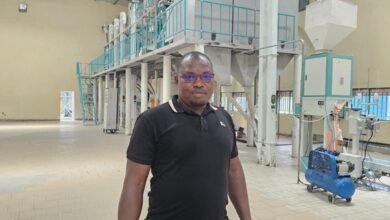Déverrouiller le potentiel : comment l’IA révolutionne l’éducation en Afrique
L'intelligence artificielle (IA) représente une avancée majeure pour l'éducation en Afrique, offrant des solutions innovantes pour personnaliser l'apprentissage et améliorer l'accessibilité. Alors que près de 60 % des jeunes ne sont pas scolarisés, l'IA pourrait jouer un rôle clé dans la transformation de l'éducation et l'inclusion de tous les étudiants.

Par Educait*
In recent years, Artificial Intelligence (AI) has emerged in various industries such as FinTech, Agriculture and Education. However in Africa, access to quality education remains a challenge for many as almost 60% of youth between the ages of 15 and 17 are not in school. AI presents a unique opportunity to bridge the gap and unlock new possibilities for students and educators alike.
AI enhancing learning opportunities
One of the key advantages of AI in education is its ability to personalise learning experiences. Traditional Education promotes a « one size fits all » approach to how students learn. However, studies have shown that this only hinders teachers from identifying each and every student’s needs, whilst consequently diminishing students confidence. According to a report by UNESCO, personalised learning has been shown to improve student outcomes by up to 30%. AI-powered platforms can analyse students’ learning styles and pace, providing tailored content and feedback to enhance understanding and retention on an individual level.
Furthermore, AI can help address the shortage of teachers in many African countries. Like the rest of the world, private schools are only available for a privileged few, but the majority of children have to face public school with limited resources that include teachers. By automating administrative tasks such as grading and lesson planning, teachers can focus more on engaging with students and delivering quality education.
AI for accessible and inclusive education
Accessibility is another area where AI can make a significant impact. For students with disabilities, AI-powered tools can provide personalised support, such as text-to-speech technology for visually impaired students or speech recognition for those with dyslexia. According to the African Union Development Agency, estimations are indicating that between 10% – 20% of the African population has a form of disability. With Africa’s population being around 1.2 billion, a majority of people, mainly children with disabilities, are not being provided with adequate education as compared to the rest of the population.
In addition, AI can help overcome language barriers. By providing real-time translation of educational materials, AI can make learning more accessible to non-native speakers and promote multilingual education in Africa whilst not hindering the health of the different native languages in Africa.
Challenges and opportunities
While the potential of AI in African education is vast, there are challenges that must be addressed. One of the main concerns is the digital divide, with many students lacking access to the necessary technology and internet connectivity. Initiatives to increase access to technology, such as the African Union’s Smart Africa initiative, are crucial in addressing this issue.
Furthermore, there is a need for investment in AI research and development in Africa to ensure that the technology is tailored to local needs and contexts. Collaborations between governments, educational institutions, and tech companies can help drive innovation and ensure that AI is effectively integrated into African education systems.
“AI has the potential to revolutionise education in Africa”
AI has the potential to revolutionise education in Africa, offering new opportunities for personalised learning, accessibility, and inclusivity. By leveraging AI technology and fostering collaboration, African countries can create a brighter future for their students and unlock the continent’s full potential. At Educait, we see the potential Africa has and hope to revolutionise education using our platform, one child at a time.
*Educait aide les enseignants à fournir un tutorat numérique personnalisé grâce à l’Educaitor, un assistant d’enseignement IA qui renforce les cours et soutient les étudiants en dehors de la salle de classe.
Pour en savoir plus : https://www.educait.co/






